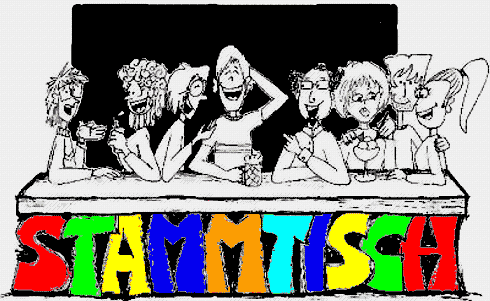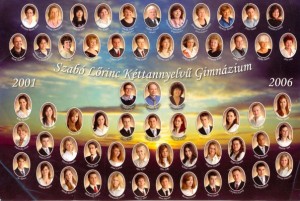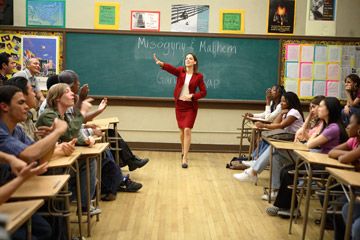Miroslav Holub was a Czech poet and an immunologist who was born in Plzeň, Pilsen in German, home of the legendary Pils beer. He died at the age of 75 on the anniversary of the French revolution, July 14th, in 1998. In 1967 he appeared in a Penguin modern poets anthology and gained much acclaim in the world of poetry in the English speaking world as a result. As an artist and a scientist he had that rare quality of bridging the arts/science divide and his poems highlighted life’s major questions in both fresh and challenging ways.
Mike Breen,one of my tutors on my MA course in Lancaster, brought one of Holub’s poems, “Brief Thoughts on Exactness” to the world of applied linguistics in 1982 at a colloqium in Canada. It was subsequently published in the “Applied Linguistics” journal in 1985 and the poem had first appeared in an anthology of Holub’s, Notes of a Clay Pigeon, in 1977.
I was reminded of this poem and article again this week while following the comments on Jeremy Harmer’s blogpost, ” No Dogma for EFL – away from a pedagogy of essential bareness.” and in particular relating to the value of classrooms as authentic places where groups of people come together to learn languages, socialise and share experiences. Jeremy’s thread also reminded me of a comment on a forum this time last year by Nik Peachey:
“ The classroom is totally artificial and constructed rather like the film studio set and certainly isn’t the ‘on location’ where genuine communication takes place for genuine purposes.”
This is the poem:
Fish
move exactly there and exactly then
just as
birds have this inbuilt exact measure of time and place
But mankind,
deprived of instinct, is aided
by scientific research, the essence of which
this story shows.
A certain soldier
had to fire a gun every evening exactly at six
He did it like a soldier. When his exactness
was checked, he stated:
I follow
an absolutely precise chronometer in the shop-window
of the clockmaker downtown. Every day at seventeen
forty-five I set my watch by it and
proceed up the hill where the gun stands ready.
At seventeen fifty-nine exactly I reach the gun
and exactly at eighteen hours I fire.
It was found
that this method of firing was absolutely exact.
There was only one chronometer to be checked.
The clockmaker downtown was asked about its exactness
Oh, said the clockmaker.
This instrument is one of the most exact. Imagine,
for years a gun has been fired here at six exactly.
And every day I look at the chronometer
and it always shows exactly six.
So much for exactness…..
Mike Breen goes on to ask which is the authentic time, maybe the soldier’s, maybe the clockmaker’s and maybe neither but the point of the poem, I think, and one of the points in his article is that when we teach a language what is real and authentic will depend on what our purposes are and that if the learning itself is the most authentic thing then “perhaps the most socially appropriate and authentic role of the classroom situation is to provide the opportunity for public and interpersonal sharing of the content of language learning, the sharing of problems, within such content, and the revealing of the most effective means and strategies to overcome such problems.” (Breen, M. P. (1985). Authenticity in the language classroom. Applied Linguistics, 6, 60-70.)
What is real and authentic for some teachers is artificial and contrived for others. Gavin Dudeney, in the recent excellent discussion on dogme and coursebooks, sees many things that go on in classrooms as not “real”:
“I see no reason why I should sit in a classroom, thrown together with people that may not interest me or share anything with me and attempt to pretend that I am indeed interested or having a good time.
Personally, I learn more from interactions that I choose, that I am genuinely interested in and with people I want to talk to than in any other situation. In that sense, I choose those real interactions over the locked ‘prison like’ interactions which are imposed in the classroom simply because we are in the same place.
I also (having predominately worked in monolingual situations) find it absurd to get people in the same class talking in English. It’s not natural, it’s not real. People do it because that’s what you do – but that doesn’t make it real.”
Is it real to talk in English in the class to people who share your mother tongue?
If the English classes are about how to learn English better, which they are in most cases, except maybe when people go to evening classes or language schools for mostly social reasons to meet people, then speaking in English to people who share your mother tongue is a very real and authentic thing to do. In fact, some people actually enjoy this a lot and when the three year teacher training colleges in Czechoslovakia were set up in 1992 it was the policy of some of the colleges to speak in English to both other teachers and students outside the class within the department, even when they shared their mother tongue Czech.

I spent many hours in Bradford in the pub speaking German, after returning from Bavaria I had a acquired a Bavarian accent which was a source of amusement to both teachers and the others on my course
When I was at university in Bradford, doing German on an Eastern European Studies course, every Monday night in the pub we had a “Stammtisch” where we went to speak German. Sometimes there were native speakers of German there and sometimes there weren’t but we always spoke German to each other and it was a lot of fun.
Coming back to the poem, what is real, authentic and accurate for one person may not be for somebody else and, in the case of the poem, reality for other people, and the time itself, might be different for both the soldier and the clockmaker.
Gavin finds it “absurd to get people in the same class talking in English. It’s not natural, it’s not real. People do it because that’s what you do – but that doesn’t make it real.” However, if people agree that learning English is the reason that you come together in a classroom then you can argue that talking in English is the most “real” and “authentic” thing that you can do.
Sitting in a classroom with people that may not interest you or share anything with you
“I see no reason why I should sit in a classroom, thrown together with people that may not interest me or share anything with me and attempt to pretend that I am indeed interested or having a good time.” Gavin Dudeney.
For most people in the world language classes take place in primary,secondary and tertiary education, I don’t know what the percentage is, but the reality is being “thrown together” with other people, as it often is in private language schools Again, if the purpose of the classroom is to improve people’s English then sharing the problems involved in doing this is an authentic activity and if the learning becomes one of the main things that is talked about in class then there may be a lot to be learned from sharing experiences with people who you might not immediately feel an affinity with.
With a group of students in school who may be together for several years, exploring both the English language and issues that are important to them and which they care about and are interested in, in a mutually supportive environment, will often define the character of the English class and developing a sense of class belonging and class identity through a shared class biography may be a strength of an English class. I have seen examples of where speaking to each other in English has become part of their identity and their shared history that they refer back to fondly and which becomes part of their social banter amongst themselves. This was a group I had a very productive year together with when they were 15/16.

Szabó Lőrinc Két Tannyelvű Általános Iskola students who I worked with for a year. We had many interesting discussions including ones on the Iraq war, contraception, Hannukah and careers.
There is another dimension to this too though, if you are working in state education then you are a subject teacher, in our case English, but you are more than this as well. You are a teacher who is trying to teach people life skills which include getting people to listen to each other, to really listen to each other, to co-operate together in groups and to encourage those people whose English is better than others to sometimes encourage those students whose English might not be so good. The reality in life is that we will always have to work together with people who we might not immediately like or feel we have much in common with but there are always some things that we can share and developing these skills in the classroom might be one of the functions of a classroom in a digital age where increasingly people can get both their language data and contact with other users of English online, whether native-speaker or not.
The role of the language classroom as a place where we motivate people to learn and help people to learn
On an earlier post of Jeremy Harmer’s I argued that the language class might be somewhere where those children, students, learners are exposed to English in a safe and motivating environment who outside the class might not get the encouragement that they need to learn languages. The teacher might have a very important role in this and seeing other students who are more motivated, who might themselves be given a role in the class to help those students who aren’t as lucky, could be an important factor in their language learning. The point I’m trying to make and the one that Mike Breen makes in his article is that sharing the common purpose of learning a language and how we can do it better transcends the issue of talking with people who we may or may not like.
Creating a classroom that we want to belong to

Hilary Swank playing Erin Gruwell in the "Freedom Writers", a true story based on a teacher trying to create a classroom that her students want to belong to
At our IATEFL Hungary conference in Budapest last year Herbert Puchta, President of IATEFL, did a talk which included extracts from the film “The Freedom Writers” in which a beginner teacher, in a very difficult environment, manages to create a classroom which the students really do feel like belonging to. Classrooms are here to stay and talking about how we make a better classroom and making this one of the topics that we talk about in class with our students, in their own language if necessary right at the beginning, might be one of the most authentic and real things we can do in classrooms. Each and every one of the students can have a role in shaping what happens in a classroom, lessons are co-constructed by everybody who is present and encouraging people to explore these things together may have enormous benefits to learning in terms of discipline, responsibility and the effectiveness of the English learning itself.
What is the real thing for one person might be totally artificial for another.
The campaign for real ale

"Real" ale's great but beer that might not be "real" as defined by CAMRA might be just as "real" for somebody else
I started off with beer so I might as well end with it. Na Zdravi,if we are drinking what Holub probably drunk! In my late teenage years I was a member of an organisation called the campaign for real ale. It was at a time when six breweries dominated the market and served beers which were easier to keep, cost less to produce and there was a movement against a drop in the quality of the beer. The organisation achieved a lot but I remember some people saying if you weren’t drinking “real” ale then you were somehow missing out on the “real” experience when in fact other beers could also be enjoyed and they were just as “real” for those people who were drinking them. Who is to say whether the clockmakers time or the soldier’s time is the right time? What is the most real and authentic thing we can do in classrooms? If what we do there is authentic to learning then for me it is real. I try as much in my classrooms to encourage spontaneous interaction and certainly do not subscribe to the “locked, prison like interactions” that Gavin describes but classrooms are here to stay, they may take on different forms in response to digital changes and much of this will be for the better but for me making them places that people actually enjoy being in will continue to be something I spend time working on and sharing how to do this with my students.
And finally in the words of Mike Breen again, “Perhaps we should seek ways of bringing to the surface all of the potential resources of the social world in which we work? Like Holub’s soldier and clockmaker, our own certainties may represent only one of many possible alternative points of view”.
So much for exactness
And the fish move in the waters and the heavens are filled
with the murmur of wings while
The chronometers tick and the guns thunder.
PS: If anyone would like to read the poem in French or in Holub’s native Czech here it is


